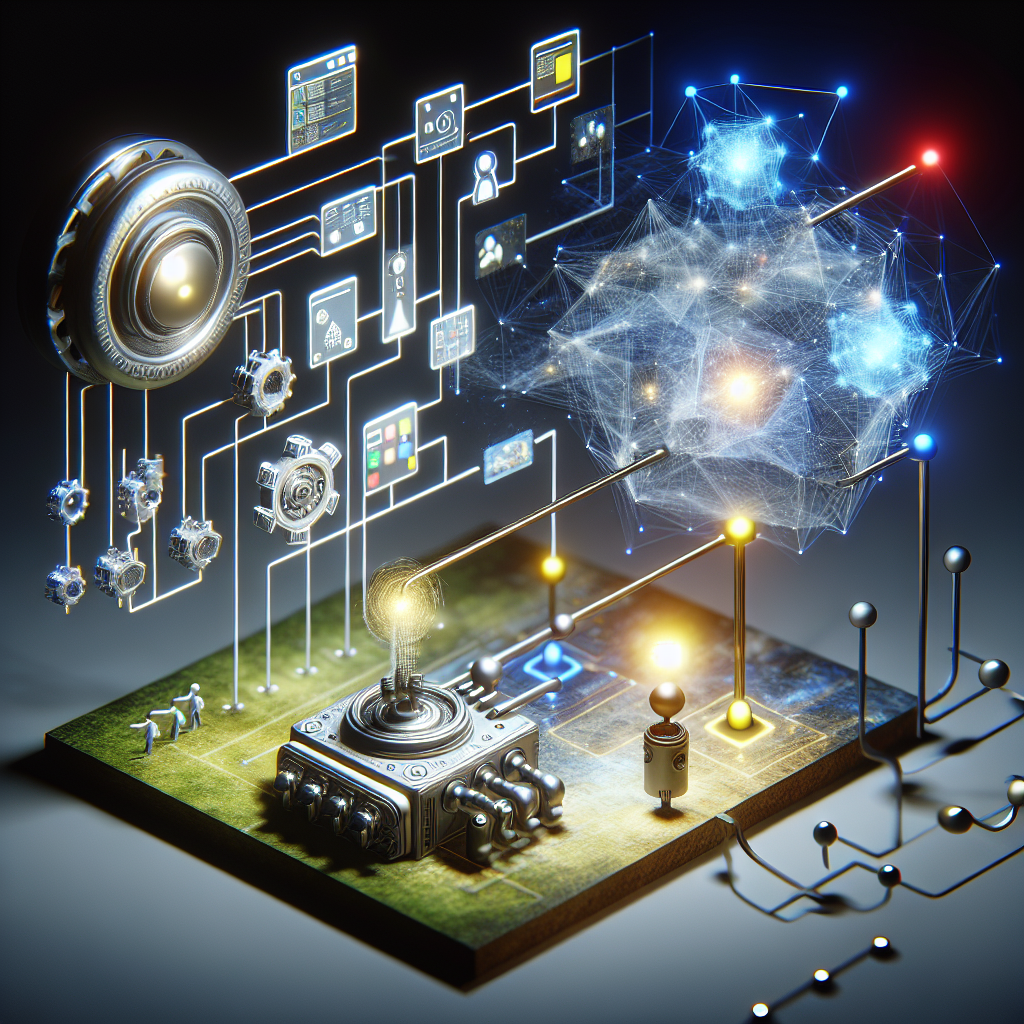Artificial Intelligence (AI) has become a significant player in the world of game user experience design. From improving player engagement to creating more immersive gameplay experiences, AI is transforming the way games are designed and played. In this article, we will explore the influence of AI on game user experience design and how it is shaping the future of gaming.
AI in Game User Experience Design
AI has revolutionized game user experience design by enabling developers to create more personalized and dynamic gameplay experiences. With the help of AI, game developers can analyze player behavior, preferences, and interactions in real-time, allowing them to tailor the game experience to individual players.
One of the key ways AI is influencing game user experience design is through the implementation of adaptive difficulty levels. AI algorithms can analyze a player’s performance in real-time and adjust the difficulty level of the game accordingly. This ensures that players are constantly challenged but not overwhelmed, leading to a more engaging and enjoyable gaming experience.
AI is also being used to create more realistic and immersive game worlds. By utilizing AI algorithms, developers can generate dynamic and responsive environments that react to player actions in real-time. This creates a more interactive and engaging experience for players, as they feel like they are truly part of the game world.
Another way AI is impacting game user experience design is through the implementation of intelligent NPCs (non-player characters). AI algorithms can be used to create NPCs that behave in a more realistic and human-like manner, making the game world feel more alive and dynamic. This enhances the overall immersion of the game and creates a more compelling experience for players.
AI is also being used to improve player engagement and retention in games. By analyzing player data and behavior, AI algorithms can predict player preferences and provide personalized recommendations for in-game content. This helps keep players engaged and invested in the game, leading to increased retention rates and player satisfaction.
Overall, AI is revolutionizing game user experience design by creating more personalized, dynamic, and immersive gameplay experiences. As AI technology continues to advance, we can expect to see even more innovative uses of AI in game design in the future.
FAQs
Q: How is AI used in game user experience design?
A: AI is used in game user experience design to analyze player behavior, preferences, and interactions in real-time, tailor the game experience to individual players, create adaptive difficulty levels, generate dynamic and responsive game worlds, create intelligent NPCs, and improve player engagement and retention.
Q: What are the benefits of using AI in game user experience design?
A: The benefits of using AI in game user experience design include creating more personalized and dynamic gameplay experiences, improving player engagement and retention, enhancing immersion and realism in game worlds, and creating more intelligent and responsive NPCs.
Q: How does AI impact the future of gaming?
A: AI is shaping the future of gaming by enabling developers to create more innovative and immersive gameplay experiences. As AI technology continues to advance, we can expect to see even more sophisticated uses of AI in game design, leading to more personalized, dynamic, and engaging gaming experiences for players.
Q: Are there any drawbacks to using AI in game user experience design?
A: While AI has many benefits in game user experience design, there are also potential drawbacks to consider. These may include concerns about data privacy and security, the potential for algorithm bias, and the risk of over-reliance on AI technology in game design.
In conclusion, AI is playing a significant role in shaping the future of game user experience design. By leveraging the power of AI algorithms, developers can create more personalized, dynamic, and immersive gameplay experiences that engage players on a whole new level. As AI technology continues to advance, we can expect to see even more innovative uses of AI in game design, leading to a new era of gaming experiences that are truly transformative and immersive.

